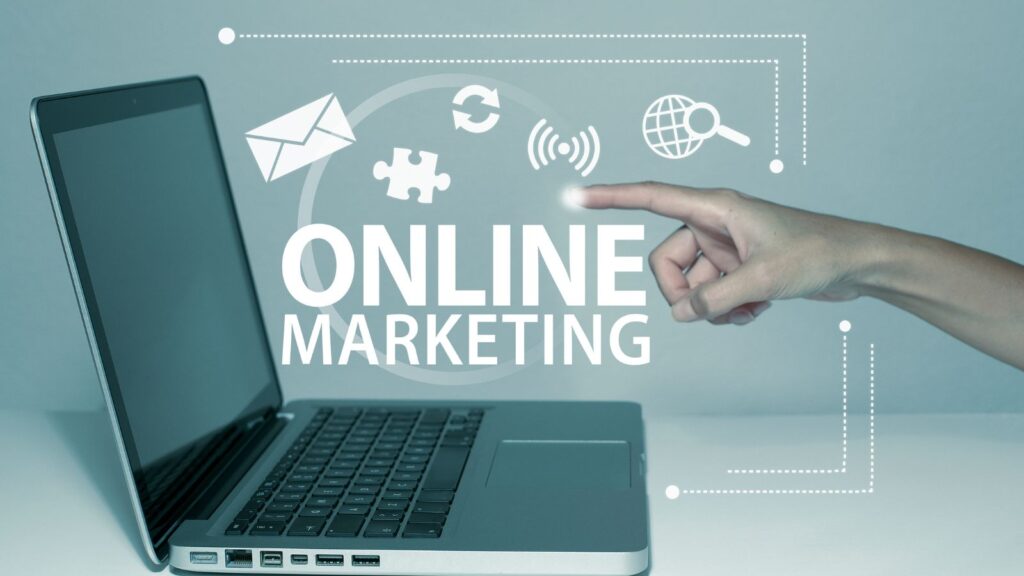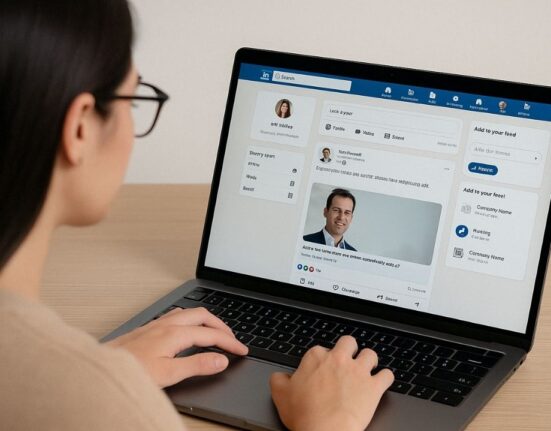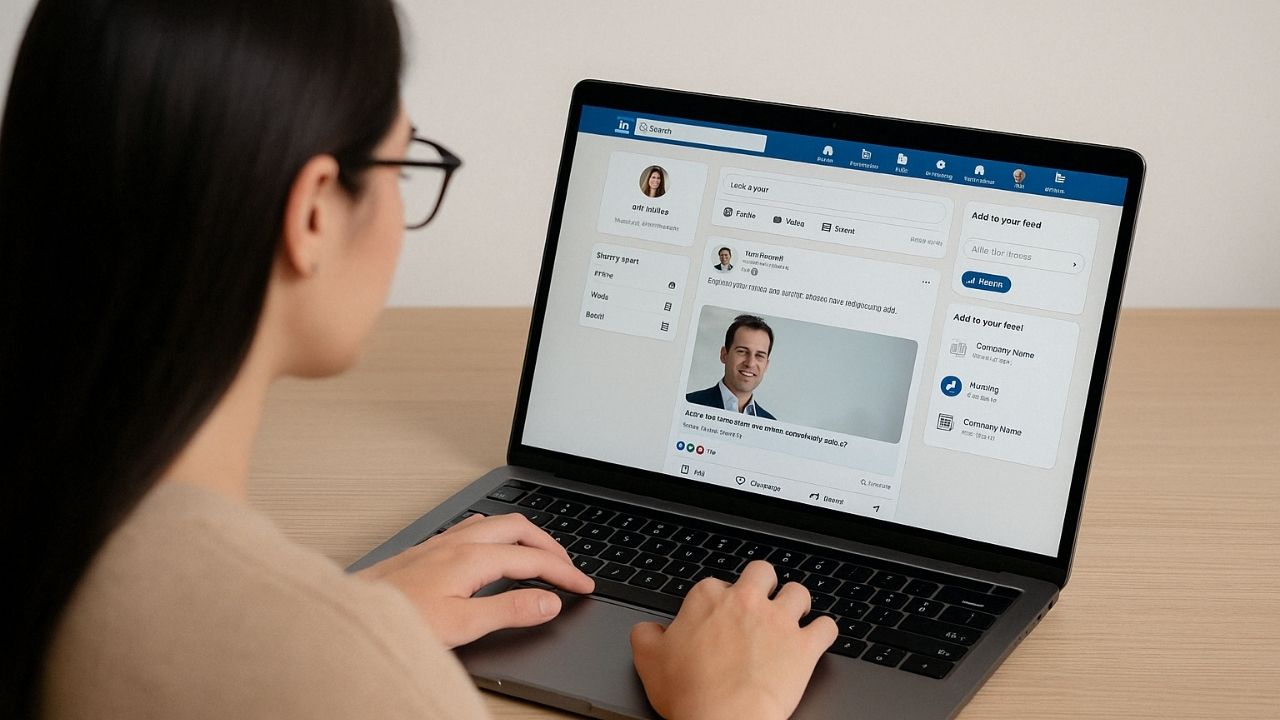Online Marketing Importance to Small Businesses | How to Take Advantage of Opportunities | How To Stand Different With Online Marketing | General Online Marketing Rules
Online marketing is a great way to connect with customers, but it can be difficult to know where to start. As the Director of Small Business Success at Constant Contact, Dave Charest has a good idea of what works and what doesn’t — especially for small businesses just getting started.
In a recent conversation with Charest, Ramon Ray drilled down to the basics of social marketing, email marketing, and SMS marketing to help small businesses understand how best to use these channels.
Why Is Online Marketing Important for Small Businesses?
When it comes to online marketing, Charest explains that there are generally three types of business owners:
- Those who feel it’s a necessary evil. They just want to be told the basics of what to do, get it done, and then go back to what they were doing.
- Someone dedicated to marketing on their team in a business. This person probably didn’t go to school for marketing and is not a marketing expert, but marketing is one of their responsibilities.
- Those who are marketing experts. They have a good grasp of online marketing, data, AI, and key metrics; and are looking for ways to get better results.
No matter where a business owner is coming from, it’s important to understand there’s always room for improvement. “I hope that I can talk to the small-business owner who doesn’t care about marketing, and they go, hey, that stuff that you told me to do works. What else can I do?” From there, they can build on their success and get into next-level marketing tactics.
What Constant Contact Does For Businesses
Constant Contact is a leader in email marketing that’s been in business for over 25 years. It all started with email marketing, but today, Constant Contact offers a variety of tools designed to help small businesses manage their entire online marketing presence.
As the name suggests, the idea is to stay in constant contact with your customers in order to stay top of mind.
How Small Businesses Can Take Advantage of Opportunities
Charest offers the following tips to help small businesses take advantage of the opportunities available online right now.
1. Provide an Experience
What can you offer to customers in the experience realm that is more personal, unique, and friendlier than what you get at big-box stores? Identifying this will help you stand out.
For example, when you go to a big box store, they expect you to complete the check-out process yourself. At a small business, there’s an opportunity to create a more personalized experience for your customers. “I don’t like to leave my house, but when I do, I want to feel good about that experience,” Charest explains.
2. Consider How You Communicate That Experience
People have their smartphone devices with them at all times. You have an opportunity to get someone’s attention right from the palm of their hand. But how do you stand out from the noise? Charest describes it as the “party principle,” with three main components:
- Social. This allows you to create engagement moments with those connected to you and expose your business to those who don’t know about you yet. “This is like the big party,” Charest. Remember that you don’t “own” social media (more on that below).
- Email. Email allows you to take ownership of the audience you’ve attracted on social media. Here’s where people are opting in and giving you their information so you can contact them on your terms. It has its limitations because you’re competing with a crowded inbox. “This is like the after party where you start to bring your people closer to you,” Charest adds.
- Text. This is the VIP list, the ones you really want to stay in touch with. With text, you can get someone’s attention right away. Because of that immediacy factor, you have to be careful not to abuse it, so people don’t unsubscribe. However, because not everyone is doing SMS marketing yet, you have an opportunity to stand out.
Each one of these channels has its strengths and weaknesses, and that’s exactly why you want to consider using all three. Use these tools in concert with each other, and ultimately, you can grow your business.
“If you’re relying on just one channel and Facebook goes down for the day, and that’s where all your sales were coming from, what happens for that day? You lose a whole day of sales?” Charest notes.
How To Stand Out From the Crowd With Online Marketing
“People do business with people they know, like, and trust.”
Dave Charest
If you want to set yourself apart on any of these channels, you need to ask how you provide value. “People do business with people they know, like, and trust,” Charest adds. So how do you use these channels to serve the people you want to reach?
Here are some ways to provide value with your social marketing, email marketing, and SMS marketing:

1. Social Marketing Tips
Consider the hypothetical example of Becky, owner of a wood-cutting business. She’s got a team of three to five people and maybe makes half a million in sales. To make the most of social marketing, Becky will want to use social media to engage and expose her business to new people. Here’s how:
- Take advantage of word-of-mouth marketing. On social media, people are sharing and consuming content. Create content that allows people to engage with it and get to know your unique personality.
- Consider what questions people have. Provide value by answering these questions. Becky might provide value by answering questions like How much does wood cost? How much do I need? How do I order the wood?
- Pick your channels. “People say, ‘Find out where your people are and go there.’ Yes, that’s true, but marry that with how you feel most comfortable creating,” Charest says.
For example, if you’re not comfortable doing Tik Toks, maybe you make videos on LinkedIn. “You have permission not to be on every channel,” Charest adds.
In a nutshell, social marketing is about driving awareness, providing customer service, and thinking about how you can get someone to take an action that takes them from social to another channel, like email marketing.
2. Email Marketing Tips
The reason email and SMS marketing work so well is not only because of the immediacy and more personal nature of these channels but also because they’re both permission-based channels.
(See Seth Godin’s Permission Marketing) People are actually raising their hands, permitting you to communicate with them. Here’s how to do it effectively.
Segment your list:
Take your larger list and chunk it down into smaller segments of people. This will allow you to get more specific with your email marketing according to demographics, behaviors like what people are clicking on, and other factors.
Strike a balance between promotional and non-promotional emails:
With promotional emails, send an announcement, a reminder, and a last-chance message. With non-promotional emails, make them personalized — even signing it off as Ramon Ray does with “P.S. I’m a real human. Reply back!” Take advantage of being small so you can really get to know your customers.
Be consistent:
“You probably need to send more than you think you do in some instances, especially when you have someone engaged with something.” To stay top of mind, you have to send them timely, relevant communications — not too much and not too infrequently.
Look at the results of all emails:
It’s not just about opens and clicks; look at the sales. You might have fewer opens on an email but more sales. Judge your campaigns holistically to understand what’s working and what’s not.
3. SMS Marketing Tips
SMS marketing is about immediacy, timeliness, and exclusivity. Ask yourself, What can I do for those who have permitted me to have instant access to them? Think of texting as a conversational kind of tool. You want to evoke that in your marketing.
Remember that a thought leader’s messaging would be different from, say, an e-commerce store. Charest mentions a text chain he received around Halloween where you had to text to “defeat the ghost.” If you defeated the ghost, you got an exclusive discount. If not, you get a consolation prize.
The point is to think about doing things differently. Create engaging conversations with your customers through SMS marketing to keep them subscribed and eager to hear from you.
General Online Marketing Rules Businesses Should Embrace
Charest offers a few general rules regarding online marketing for small businesses. Here they are:
- Be in constant contact with your customers.
- If you wouldn’t do it in person, don’t do it online. Be you, communicate with people, and be of service to them.
- With any of the best practices above, think of it as a starting point, especially if you are new to online marketing. Begin from there, and then fine-tune things to discover your best practices. “Don’t do what we tell you to do blindly,” says Charest. “They are starting points to find out what works best for you.
For more tips on growing your business, be sure to check out Ramon Ray’s list of top business books at https://www.zoneofgenius.com/bestbooks/. Oh, and by the way, it’s an email opt-in.
Related articles:
3 Simple Marketing Tools Every Business Owner Must Invest In
Your Personal Brand Is a Powerful Marketing Tool
New Intuit Mailchimp Features Optimize Small Business Marketing
Mailchimp Partners with Yelp to Help Businesses Amplify Word-of-mouth Marketing

About Dave Charest
Dave Charest is an experienced content marketer and a strong leader with a proven record of using content in all its forms to help businesses build audiences and influence their behavior over time resulting in customers who stay longer, spend more, and refer others.
Charest is a small business marketer, speaker, host, & content creator obsessed with small business success. He’s been on a mission to make marketing easier for small businesses since 2006.
He’s also the Director of small Business Success at Constant Contact and Publisher at DaveCharest.com.










